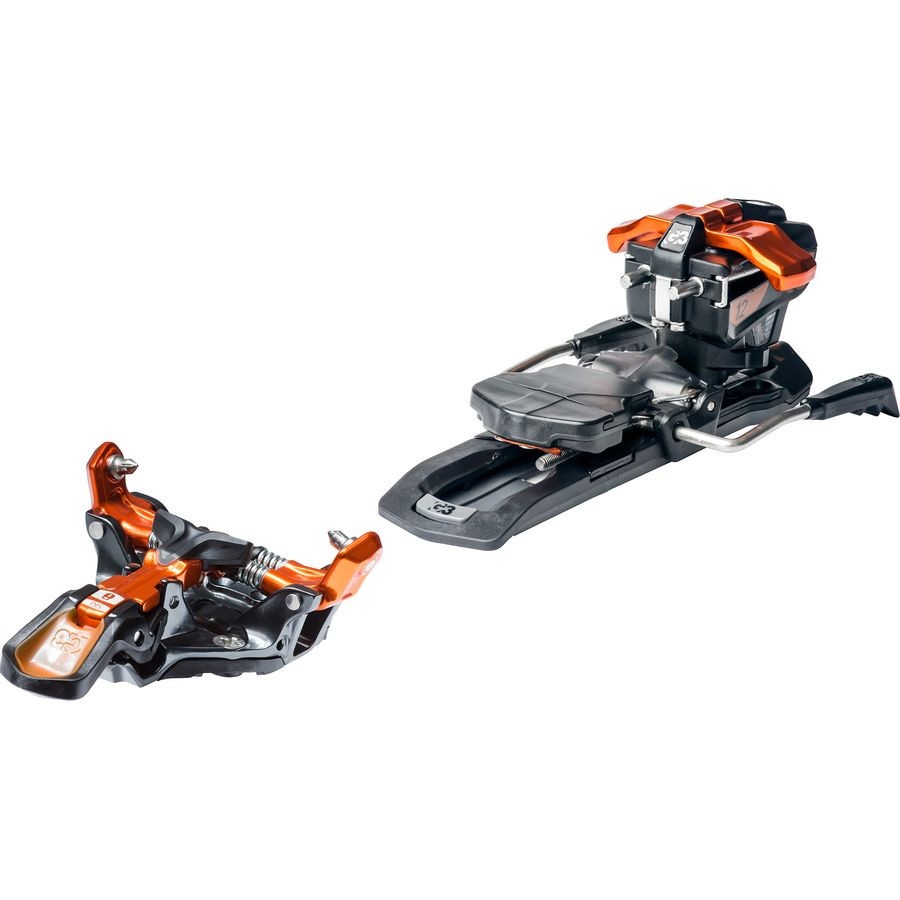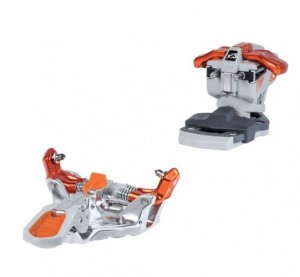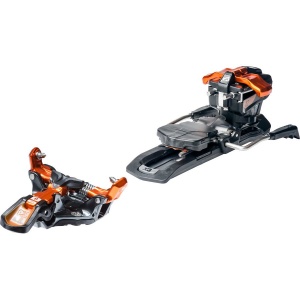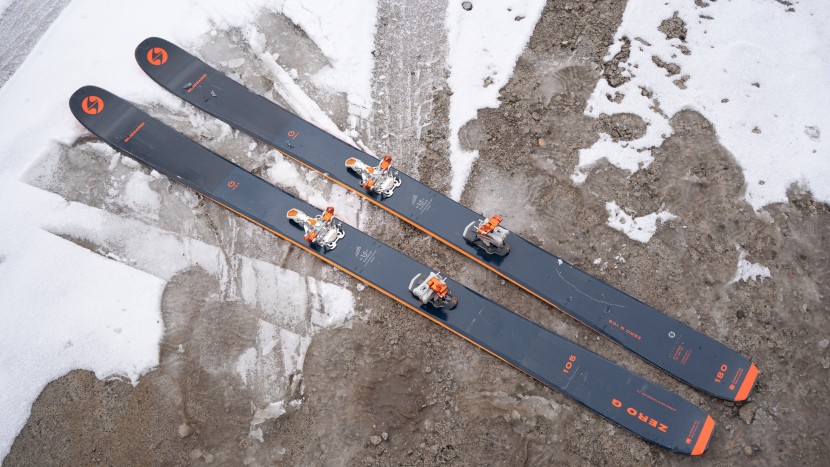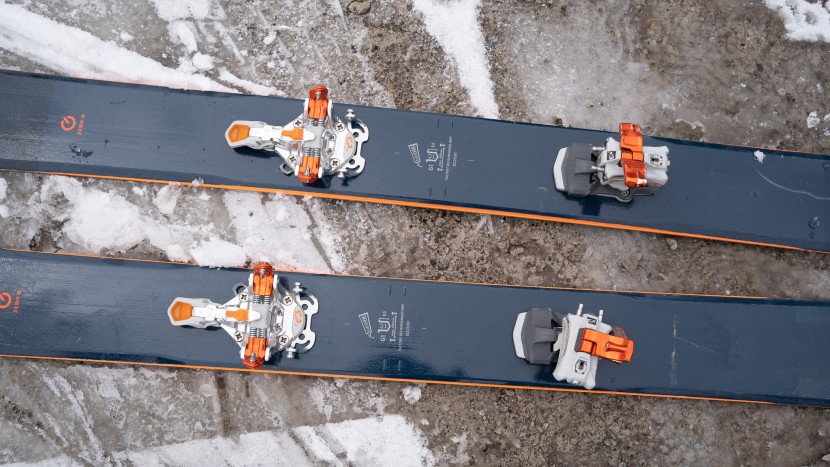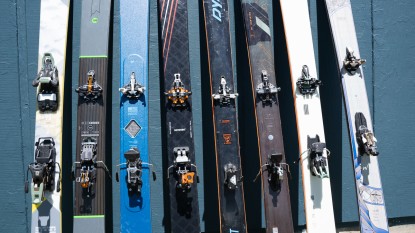G3 Ion 12 Review
Our Verdict
Compare to Similar Products
 This Product
G3 Ion 12 | |||||
|---|---|---|---|---|---|
| Awards | The Best Overall AT Binding | The Other Best Binding | Best Ultralight Touring Binding | Best Bang for the Buck | |
| Price | $664 List $564.02 at Amazon | $699.95 at Evo Compare at 3 sellers | $600 List $479.96 at Backcountry | $650 List $519.96 at Amazon | $280 List $279.95 at Amazon |
Overall Score  |
|||||
| Star Rating | |||||
| Bottom Line | Solid, simple ski bindings that cram some unique attributes into a reasonably priced package; we only wish they were lighter, included brakes, or both | A high-performance tech binding that incorporates every top-of-the-line feature at a very reasonable weight | This binding has a carefully tailored selection of the features you need while keeping weight to a minimum. The result is an excellent binding for any backcountry skier | Ultralight bindings with broadly adjustable release values | An affordable tech binding that has seen iterative improvements over the decades, yet remains reliable and highly durable |
| Rating Categories | G3 Ion 12 | ATK Raider 13 Evo | Salomon MTN Summit... | Dynafit Superlite 150 | Dynafit Speed Turn |
| Weight (35%) | |||||
| Downhill Performance (25%) | |||||
| Touring Performance (20%) | |||||
| Ease of Use (15%) | |||||
| Construction Quality (5%) | |||||
| Specifications | G3 Ion 12 | ATK Raider 13 Evo | Salomon MTN Summit... | Dynafit Superlite 150 | Dynafit Speed Turn |
| Weight of 1 binding and screws, lightest possible configuration (in grams) | 492 | 396.5 | 310 | 179 | 364.5 |
| Release Value Range | 5 to 12 | 5 to 13 | 6 to 12 | 4 to 13 | 4 to 10 |
| Brakes? | No | Yes | Optional | Optional | No |
| Brake Width Options | N/A | 86, 91, 97, 102, 108, 120 mm | 80, 90, 100, 110 mm | 75, 90, 105 mm | N/A |
| Weight of 2 bindings, common setup (pounds) | 2.13 | 1.75 | 1.86 | 0.79 | 1.61 |
| Weight of 2 bindings (in grams). Multiple options are noted where we have tested multiple options. | 983 | 793 | 843 (600 without brakes) | 358 (492 with adjustment plate) | 729 |
| Stack height: average of toe and heel pin height (in mm) | 46 | 40 | 38 | 36 | 37.5 |
| Toe/heel delta: difference in height between heel pins and toe pins (in mm) | 12.5 | 12 | 8 | 10 | 17 |
| Meets ISO/DIN Standard? | No | No | No | No | Yes |
| Ski Crampon compatible? | With aftermarket part. Only G3 brand. | Yes. "Standard" style. Not all crampons will be cross-compatible | Yes. "Standard" style. Not all crampons will be cross-compatible | Yes. "Standard" style. Not all crampons will be cross-compatible | Yes. "Standard" style. Not all crampons will be cross-compatible |
Our Analysis and Test Results
G3 updated the Ion 12 binding since our last test cycle. The photos above show the old Ion 12 (left) and the newest model (right). The newest iteration is a bit heavier, but includes a wider plastic stop for step-in guidance and now features brakes and associated anti-friction device. We are now linking to the updated 2023/2024 model, which is more readily available. However, our review still tells of our experience with the previous version.
The G3 Ion 12 is a carefully engineered and designed, solid-functioning, all-around backcountry ski binding. The lack of a ski brake somewhat limits its appeal, but we'd argue that expert backcountry skiers (different from “expert” resort skiers) don't need ski brakes.
Weight
The Ion LT is among the heaviest of the non-TUV certified bindings. This greater weight, as compared to something like most of our award winners, is attributable to greater usability features and the downhill “forward pressure” attribute. These things could very well justify the extra weight for you. Our test team definitely prefers lighter bindings, even if it means a little compromise in performance.
Downhill Performance
Downhill performance is a wide-reaching category. We look at two major categories of information in this scoring metric. First, we consider how the bindings perform in normal skiing. How well is your boot held and what is the binding geometry as it pertains to downhill performance. We experienced no “pre-release” of these G3 bindings. This is good. The design includes a little bit of “forward pressure” at the heel that, at least theoretically, allows for greater binding elasticity in high-energy downhill skiing. The stack height and heel-toe delta (difference in height) are almost exactly average.
Touring Performance
The frictionless pivot and three levels of heel elevation put the Ion LT right in the mix with the best of the best in this category. Beginner skinners really appreciate the option to lift their heel to one of the three different levels. Next, we consider what happens in non-standard downhill skiing situations. Essentially, how reliably and adjustably does the binding release, and is the ski braked when it comes off. The bindings have a non-certified “release value” adjustment and no ski brakes. In these ways, the Ion LT is relatively non-sophisticated.
Ease of Use
We can rate the ease of use of the Ion LT very highly. The toe piece is optimized for easy entry, and the heel lifters flip around very readily when you want to change them. In most ways, the simple yet carefully designed Ion LT is the top-scoring in terms of ease of use.
Construction Quality
We had no problems at all with the durability or function of the Ion LT. Other users have briefly mentioned issues with the toe piece getting stuck in the locked position, but our extensive testing revealed no such problem. As initially compared to the construction of otherwise similar all-metal bindings, the inclusion of plastic in the Ion LT is a little unnerving. However, the plastic is clearly carefully chosen and well-engineered. We experienced no breakage.
Should You Buy the G3 Ion LT?
At the time of its first appearance on the market, the G3 Ion LT was a solid, reliable, relatively lightweight entry. It is getting, as they say, “long in the tooth”. Others, even those from the same manufacturer, are considerably better now in many ways. Nonetheless, if you find a spectacular deal on the Ion LT, snap it up. They're still good and reliable bindings.
What Other AT Bindings Should You Consider?
The best comparison is to the G3 Zed. We found the Zed to have exactly the same important performance attributes at a much lower weight. It is hard to justify the Ion over the Zed now.


